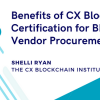Since the day it was launched, and across all its formats, Outsource interviews with the movers and shakers of the global sourcing and outsourcing community have been a crucial part of the brand; our Q&As bring readers up close and personal with interviewees from every corner of the space, from world-famous sourcing superstars to the up-and-coming icons of tomorrow.
Outsource: Marcos, thanks for joining us. Let's start with a big topic: why is the distinction between offshore, onshore and nearshore becoming less important?
Marcos Jimenez: The most visible driver is that automation tools are eroding the competitive advantage of labour arbitrage. Robots can work from anywhere, and, for many tasks, robots are cheaper and more productive than people. That means that a human worker based in, say, Bangalore, who may be very skilled, will not be able to compete against a robot, either on price or performance, when it comes to executing clearly defined and repeatable tasks. So what’s happening is that customers are less interested in pursuing the traditional dynamic of chasing the latest outsourcing ‘hot spot’ region where there’s an availability of skilled labour at low cost.
O: How is this trend impacting the market and how are providers responding?
MJ: Obviously it’s having a disruptive impact, most visibly by creating a major dilemma for incumbent providers who have entrenched relationships based on the traditional labour arbitrage model. Customers of these providers are clamouring for digital innovation and automation solutions, but implementing those solutions will mean cannibalising existing revenue, so in many cases incumbents are reluctant to introduce innovation. Meanwhile, competitors looking to replace those incumbents see an opportunity and are aggressively pushing their innovation.
This is one of the key factors contributing to the trend of smaller contracts and shorter contract terms. There’s more and more competition, but also more and more opportunities. For us at Softtek, this dynamic market is opening up new opportunities as we’re getting involved in the types of deals that traditionally it’s been very difficult to get into.
In terms of the big picture, the major providers who have built their business on labour arbitrage now need to worry not only about their existing customers, they need to fundamentally redefine their delivery models. And we see that with announcements of the big firms planning to reduce headcount rather than hiring more and more staff to accommodate growth.
For customers in this environment, I think it’s imperative to stay on top of new developments in technology and be sure their incumbent providers are being aggressive about introducing innovation. And if the providers is being complacent or slow to change, the customer should look for fresh ideas and new solutions. If they settle for more of the same face a serious risk of falling behind.
O: Are contracting models and metrics evolving as well?
MJ: Absolutely, outcome-based agreements are becoming more and more prevalent, partly because automation tools make that type of approach more feasible. The industry has been talking about outcome-based models for years, but it’s been difficult to work them into existing contract mechanisms. Today, automation tools are forcing a redefinition of concepts such as FTEs, as well as metrics such as incident resolution rate. We’re able to step back and say, rather than focusing on resolving incidents, let’s focus on finding where the problem is and then reducing the volume of incidents. Again, that type of approach has been a longstanding goal, but today digital, RPA and cognitive tools are disrupting the established order to the extent that is enabling new ways of defining solutions.
That being said, in many cases there’s still a reliance on the old-school contracting models, which I think reflects the inertia of the offshore model and a reluctance to cannibalise existing revenue. So there’s still a need for more change.
O: How are client expectations of service providers changing?
MJ: The main change we’re seeing is the fact that customers are increasingly focused on digital enablement, and as a result they are asking for different things from their service providers. Traditionally, customers would tell their provider, “I need you to do x, y and z.” And the geography-based model is ideally suited to manage these types of relationships where there are clearly defined transactions and processes. Today, customers are asking their providers, “How can you help me transform my operational environment?” Here, providers need to be proactive, agile and flexible, and this is another reason the geography-based model is becoming less relevant, because it just isn’t equipped for this type of open and collaborative environment.
O: Softtek has traditionally been categorised as a “nearshore provider”: how is the changing marketplace impacting how customers perceive your services, and how you position Softtek to your customers?
MJ: Yes, we are having to redefine ourselves. Our brand was built to a large extent on the benefits of the nearshore model, and on our ability to offer, through geographic proximity and time zone alignment, closer collaboration, better communication and more responsiveness. While those attributes are still important, today the geographic component is becoming secondary, and our customers are less interested in where our teams are located than they are in making sure that we have the right culture in terms of flexibility and agility, the right tools and technology in terms of digital capabilities and the right team in place in terms of skill sets and industry knowledge.
The fact is, everybody in this industry has to change, and change dramatically. By virtue of being a smaller player, and by virtue of our nearshore legacy, I believe we have an advantage in that we have less to disrupt and uproot than many of our larger competitors. But more importantly, agility and flexibility have traditionally been at the heart of our value proposition, and today those attributes are top priorities for our clients. So I believe for us the process of change is more of a natural transition rather than a fundamental reinvention.







